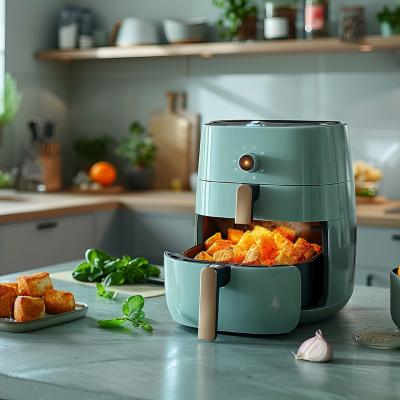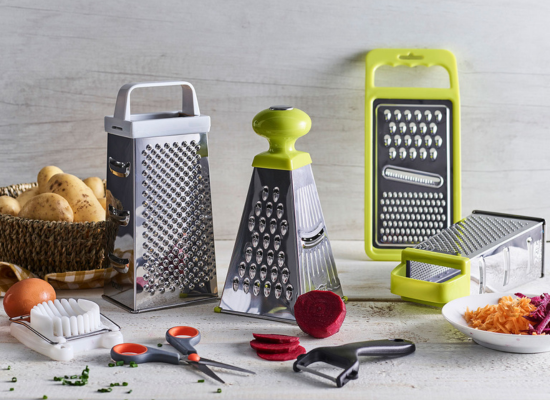Shrimp are known to have a mild buttery taste, along with creamy notes. Also, it has a firm texture, which perfectly melts in the mouth with proper cooking. But many shrimps have fishy notes and are subtly salty as they live in the fresh ocean.
While shrimp has a buttery taste, you might want to know about its nutritional factors. Also, whether or not can you eat it raw? We have tried to answer all the essential questions related to shrimp through this post.
What Does Shrimp Taste Like?
The mouthwatering taste of shrimp has made it one of the most popular seafood. Not to mention, shrimp is not very experienced and is healthy. If you have never tried shrimp and are willing to know how it tastes, keep reading this in-depth guide to gain the right information.
Shrimp vs Prawns
Many people tend to believe that shrimp and prawns taste the same, but that is not true. However, shrimp and prawn tastes are hard to differentiate.
Prawns are known to live in saltwater. So, the outer layer of the prawn is thick and has different colors, including red, brown, and green. Compared to spot prawns, white shrimps have more weight.
Both white shrimp and tiger prawns are known to have essential nutrients. However, the taste of each shrimp is different. Shrimp are known to have an ammonia-like taste. At the same time, tiger prawn has a sweeter texture.
Furthermore, prawn meat is chewy and firmer than raw shrimp. For roasting, tiger shrimp works the best as it has a thick shell, which enhances the taste of meat after roasting.
Shrimp vs Lobster
If you compare the taste of fresh lobster with shrimp, you will notice that the taste of shrimp is inferior. Another difference is the smell- where lobster is a precious ocean specialty; shrimp smells like ammonia. Also, lobsters are expensive.
The best is the Atlantic oceans as they are sweet, firm, and have a delicious taste. If you like seafood, you will fall in love with lobster’s fresh and juicy taste.
Compared to the shrimp bricks, the roe-eggs on the lobster’s head have a nicer taste. But removing the smell of ammonia from lobster and making a delicious dish is definitely not easy.
Shrimp vs Fish
You might think that shrimp and fish are an unrelated comparison, but that is not true. After eating seafood for some time, you will find that salty fish and raw shrimp share similarities. Both have a slightly fishy smell and white flesh.
But you can easily distinguish a fish as it contains trimethylamine, which has a much more unpleasant odor. Compared to fish, shrimp tastes better as it is chewy and delicious.
What Are the Nutritional Factors of Shrimp?
Among the possible seafood, shrimps are widely consumed. That’s because shrimp has a variety of nutritional values. Regularly eating shrimp can increase the intake of a variety of minerals and vitamins in your body.

But shrimp has high cholesterol content, which does not make it an ideal fit for many seafood lovers. You can consider eating raw and alive shrimp if you want more nutritional value.
You must never try to reheat or freeze burn shrimp as it might taste like bleach. Also, it can be bad for your health. Overall, you can eat shrimp without worrying about possible side effects as it is mainly made of water and protein.
- Calories: 99 calories
- Fat: 0.3 grams
- Carbs: 0.2 grams
- Cholesterol: 189 milligrams
- Sodium: 111 milligrams
- Protein: 24 grams
- Iodine Selenium: Omega-6 and omega-3 fatty acids
Can You Eat Raw Shrimp?
While shrimp has a delicious taste, its head is considered a delicacy in many regions and cultures. But should you eat raw shrimp? Is it safe?
Usually, eating raw shrimp is not encouraged as it has parasites, viruses, and bacteria. So, if you eat raw shrimp, you might be playing a dicey game. Did you know that among 70 species of bacterium known as Vibrio, 12 can be deadly and are found in raw shrimp?
Besides Vibrio, other raw shrimp bacteria, including e-Coli, bacillus, and salmonella, are known to cause food poisoning.
The taste of raw shrimp has a sweet taste. Its texture can vary greatly between tender and firm, depending on the variety.
LEARN MORE: 15 Easy Japanese Shrimp Recipes
How Does Shrimp Taste When It Has Gone Bad?
If you are working with fresh shrimp, you will notice that it has no odor. Moreover, it has a salty taste. But if your shrimp smells like ammonia, you must avoid consuming it. A slightly “off” smell is an indication that shrimp is not in a good state for consumption.
The ammonia growth comes from the bacteria growth that happens inside the spoiled shrimp. If you still eat bad shrimp, you might suffer from food poisoning.
Is Cleaning Shrimp Necessary
Honestly, no cleaning is required. The little dark black line that you notice in the shrimp is just the digestive tract.
Here’s when you should clean shrimp:
- Clean Before Cooking: Before cooking shrimp fajitas, pasta dishes, and stir-fries, you must clean shrimp.
- Clean after cooking: You can use simply porch the shrimp and then clean it once it is cold. Poaching the shrimp in the shell enhances the flavor.
- Leave the Tail On Leaving the tail on looks nice for the Shrimp Skewers and Shrimp Scampi. You can also leave the tail for cooking coconut shrimp or shrimp cocktails.
Recipe Tips for Shrimp
Below are some recipe tips for preparing shrimp:
- Wild or Farmed Shrimp: You can get either of the two shrimp, depending on your grocery budget and taste. If you want stronger flavors, go for the wild-caught shrimp. Whereas, if you want subtle-flavored shrimp, you can go for farm-raised shrimps. You can also check the packaging to know more about the shrimp you purchase.
- Thaw in the Refrigerator: You can thaw the shrimp overnight by placing it on the tray. Remember that if the bag you put in has holes, you must put the bag on the tray or bowl.
- Thaw in the Sink: Open the bag and then put them in a bowl of cold water. After that, you are required to turn on the faucet and let the trickle of cold water run down the bowl. You can thaw shrimp for a couple of minutes.
- Shrimp Stock: You can make delicious homemade shrimp stock with shrimp shells.
Conclusion
Shrimp has high nutritional value, and it has a mild buttery taste. You can prepare multiple dishes with shrimp. But eating raw shrimp is not advised as it causes food poisoning. So, you must carefully consume shrimp.



